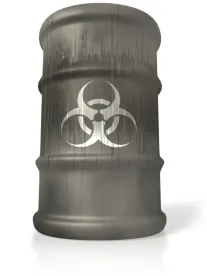In a decision highlighting a practical challenge in pursuing tort claims against some underground storage tank (“UST”) owners and operators, the Michigan Court of Appeals held that a trial court could nix a lawsuit stemming from a leaking UST while state regulators were already involved in an ongoing cleanup. See Carson City Hospital v. Quick-Sav Food Stores, Ltd., No. 325187, 2016 WL 1719047 (Mich. Ct. App. Apr. 28, 2016).
The Michigan Department of Environmental Quality (“MDEQ”) confirmed a release from a UST system at Defendant’s gasoline station in October 2011. Defendant conducted a site investigation and found soil and groundwater contamination at the station and on neighboring properties, including at a medical clinic next door. Defendant engaged MDEQ in formulating a response, remediation, and monitoring plan pursuant to state regulations, although MDEQ had not approved a final corrective action plan as of late 2014.
The owner of the neighboring medical clinic brought suit against the gasoline station in September 2013, seeking damages and injunctive relief to address the contamination affecting the medical clinic property. The trial court granted a defense motion to dismiss, citing the doctrine of “primary jurisdiction,” which allows a court to defer primary jurisdiction to a regulatory agency better positioned to apply its expertise to the issue. The court ruled that the MDEQ had primary jurisdiction to address issues related to leaking USTs, based on the agency’s expertise and the authority the legislature delegated to the agency. So long as MDEQ was involved in addressing such issues, the court could defer the lawsuit as a matter of discretion and judicial deference to the agency. The dismissal was without prejudice, and the court noted that “it is not a matter of whether there will be judicial involvement in resolving a case, but instead pertains to when it will occur and where it will start.” Id. at *7 (emphasis added).
On appeal, the Court of Appeals upheld the trial court’s decision, holding that the trial court properly applied the primary jurisdiction doctrine. Here, the Court held that applying the doctrine and deferring to MDEQ’s concurrent jurisdiction fulfilled the policy objectives of protecting the separation of powers, allowing the agency with the expertise and the regulatory authority over UST operators to do its job, and avoiding inconsistent results. With no MDEQ-approved remediation plan yet in place, “the full extent of corrective actions and remediation demanded of [Defendant] remained unknown and could have eventually been inconsistent with or adverse to equitable relief ordered . . . or adverse to monetary damages awarded on the basis of response costs and business and property-value losses.” Id. at *11. The Court also emphasized that, because the trial court dismissed without prejudice, Plaintiff was free to re-file its claims after the administrative process ran its course.






 />i
/>i

